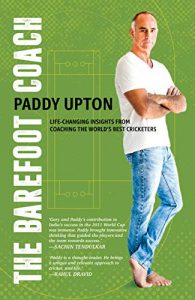
# Key Takeaways:
– The importance of building a strong team culture and creating a positive work environment
– The power of effective communication and active listening in leadership
– The value of continuous learning and self-reflection for personal and professional growth
– The role of empathy and emotional intelligence in effective leadership
– The benefits of a coaching approach in managing and developing team members
# Practical Application:
The concepts and strategies presented in The Barefoot Coach can be applied in real-world scenarios by:
– Creating a positive and inclusive work culture by fostering open communication and encouraging team collaboration
– Practicing active listening and effective communication techniques to understand and address the needs and concerns of team members
– Continuously learning and reflecting on one’s own leadership style and making necessary adjustments for improvement
– Developing empathy and emotional intelligence to better understand and connect with team members
– Adopting a coaching approach to manage and develop team members, providing them with guidance and support to reach their full potential.
# Valuable Insights for Leaders and Managers:
– Chapter 2: “The Power of Culture”
– offers insights on how to build a strong team culture and create a positive work environment
– Chapter 3: “The Art of Communication”
– provides valuable tips on effective communication and active listening in leadership
– Chapter 4: “The Learning Leader”
– highlights the importance of continuous learning and self-reflection for personal and professional growth
– Chapter 5: “The Empathetic Leader”
– emphasizes the role of empathy and emotional intelligence in effective leadership
– Chapter 6: “The Coaching Leader”
– offers practical advice on adopting a coaching approach in managing and developing team members.
# Case Studies and Examples:
– The story of the All Blacks rugby team and their coach, which illustrates the power of a strong team culture and effective leadership.
– The example of Google’s “Project Oxygen” and how it implemented coaching as a leadership style, resulting in improved team performance.
– The case study of a CEO who transformed his company’s culture by focusing on empathy and emotional intelligence in his leadership approach.
– The story of a manager who successfully used coaching techniques to develop and motivate his team members, leading to their professional growth and improved performance.
On the way to India, Coach Paddy Upton and Gary Kirsten had only two objectives — winning the 2011 World Cup and becoming number one in Tests.
Through this book, Upton reveals how he and coach Kirsten achieved these two objectives. Upton discusses how they formed a strong team culture and a fine work ethic.
This book sheds light on the principles of coaching, illustrates the complexities of the mind, and reveals that mentoring is not about preaching but it is about being one among the athletes, sharing their anxieties and lending idea.
Here’s what can be learnt :
Endure Fear And Failure:
- Failure is only temporary.
- Some things can never be in your control. Search for the things which are in your control and focus your time and energy on those.
- What actions you take to overcome failure matter the most.
- Embrace fear, get comfortable with it.
Know When To Coach And When Not To:
A piece of priceless advice that Dhoni once dished out to Upton — “It is not essential that you have to speak all the time.”
Respect:
- Permit individuals to speak at all levels.
- Junior most people like Sanju Samson and Senior-most people like Praveen Thambe had equal opportunities to speak and share their experience and knowledge with the team.
Team Culture:
- Win or lose – There’s always music running in the dressing room. Never let any moment become dry or gloomy.
- Celebrate the best moments even if the team has lost the match.
- Be humble.
Build Self Organizing Teams:
- Team members decide how many hours to put in and what they would practise in a day instead of being instructed by their coach.
- Individuals know their bodies best. Some routines suit others better while some don’t.
- It is not always about winning but rather how well the team played the game.
Focus:
- Be thoroughly prepared 10 months before the world cup. Plan carefully, be mindful and always leave extra room for mental development.
- Focus more on strengths, rather than draining all your energy over weaknesses.
Commitment:
- Each team member is committed to giving their best and always support each other.
Leave a Reply